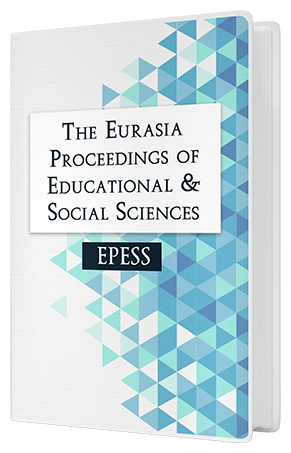An Investigation of Graduate Students' Views on Information Literacy
DOI:
https://doi.org/10.55549/epess.1381978Keywords:
Information literacy, Graduate students, Content analysisAbstract
Information literacy, which is defined as the ability to access, evaluate, use and communicate information in different forms, has a special importance in every period of individuals' lives. The competencies sought in an information literate individual vary according to the level of education they are in; a linear relationship is established between the level of education and the areas of competence. The rapid development of technology and the subsequent information explosion have revealed the importance of qualified information, and societies have started to need individuals who access the right information, use it, produce and share it, and use technology effectively in these processes. It has become imperative for individuals to access the most up-to-date and accurate information in their own professional field. Information literacy qualifications of graduate students are of great importance in terms of both the studies they will put forward and their self-development. This study was carried out to determine the views of graduate students studying at a university in the 2022-2023 academic year affiliated to the Institute of Educational Sciences on information literacy. The information literacy interview form developed by the researcher was used as a data collection tool. Information literacy interview form developed by the researcher was used as a data collection tool. Content analysis was used in the analysis of the views of 20 postgraduate students affiliated to the Institute of Educational Sciences.Graduate students' views on the dimensions of information literacy were examined in the context of knowing, accessing, evaluating, using, ethical/legal issues. When the results of the research are examined, it is seen that graduate students see information literacy as the ability to use the stages of information literacy, determine the information they need when they encounter a problem situation, the sources of access to information are mostly the internet, question the accuracy of the sources in evaluating information, use information for academic development, and point out the presence of unrealistic information as a problem. In line with these results, it is suggested that information literacy should be added to the content of the research methods in education course, which is one of the courses taken by graduate students, and students should develop the skills of questioning the authenticity of the information obtained from the internet that they use in their academic development.Downloads
Published
Issue
Section
License
Copyright (c) 2023 The Eurasia Proceedings of Educational and Social Sciences

This work is licensed under a Creative Commons Attribution-NonCommercial-ShareAlike 4.0 International License.
The articles may be used for research, teaching, and private study purposes. Any substantial or systematic reproduction, redistribution, reselling, loan, sub-licensing, systematic supply, or distribution in any form to anyone is expressly forbidden. Authors alone are responsible for the contents of their articles. The journal owns the copyright of the articles. The publisher shall not be liable for any loss, actions, claims, proceedings, demand, or costs or damages whatsoever or howsoever caused arising directly or indirectly in connection with or arising out of the use of the research material. All authors are requested to disclose any actual or potential conflict of interest including any financial, personal or other relationships with other people or organizations regarding the submitted work.




